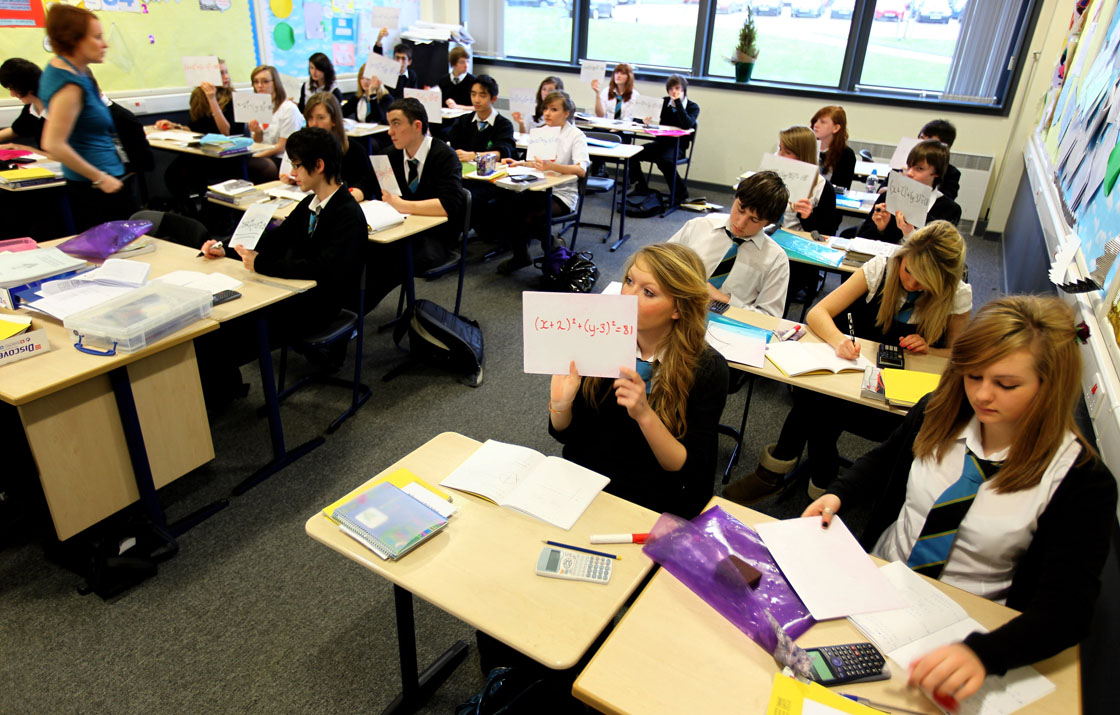TORONTO – Grade 6 teacher Emily Marquis sees the stress her adolescent students face.

They’re dealing with keeping up with school and sports, they go home to sibling rivalries and at recess, they’re trying to fit in with their peers.
“And those are just the main stresses. They feel overwhelmed, like they can’t do everything,” Marquis, a teacher in Ohio, told Global News.
“Their stress is just as real and just as much as adults,” she said.
For about an hour a day since the beginning of the school year, Marquis has been teaching her students material from a pilot program that promises it’ll offer life skills for young adults.
Read more: Could personality in childhood predict how teens will respond to drinking?
Marquis is only one of a handful of teachers working with pre-teens and teens with a new course called COPE – or Creating Opportunities for Personal Empowerment.
While critics have suggested schools need to start teaching kids about personal finance or career-planning, an Ohio State University doctor is rolling out her own strategy to help kids manage their bumpy road into adulthood.
A doctor’s decades-long project
And Dr. Bernadette Melnyk, a pediatric nurse and psychiatric mental health expert, says that so far, her COPE coursework is garnering international attention.
“I really want to target adolescents throughout the country and globe with these particular skills because I truly believe that if we can get teens these skills, they’ll engage in healthier behaviours,” she told Global News.
- Canada’s dental plan has officially kicked in. Who is eligible?
- Mandatory breath samples now required in every Toronto-area traffic stop: OPP
- Tories grill Liberals in question period about minister’s ties to lobbyist, PPE company
- N.S. mother ‘in shock’ after enduring 17-hour hospital wait with sick baby
In turn, they’ll be physically and mentally healthier.
Read more: Young Minds: Millennials facing increased rates of stress compared to other generations
The COPE program is 23 years in the making and stems from cognitive behavioural skills that psychologists teach their patients.
“We teach teens that how they think directly relates to how they feel and how they behave,” Melnyk explains.
If teens have trouble with math, for example, they may be telling themselves they’re not good at the subject and, in turn, give up. COPE would walk students through thinking through the problems in their lives instead of letting irrational or negative thoughts take over.
“Young adults can be their own worst critics. It’s about teaching people to change their pattern of thinking,” Melnyk said.
Results from COPE’s pilot project
The results from her pilot project are promising: she ran COPE and another program that acted like a placebo on 739 adolescents in 11 high schools.
Results showed that through 15 weeks of COPE, students were healthier, they were drinking less and they were faring better in school.
Read more: Alcohol advertising linked to ‘increased’ drinking in adolescent girls, Canadian doctor warns
Those in the COPE program were recording more steps on their pedometers each day – 13,681 compared to 9,619. Their body mass index was lower compared to the other group, too.
Six months later, the percentage of teens that were considered overweight decreased in the COPE group, from 44 per cent before the program, to 41 per cent after.
Only 13 per cent of the group had at least one alcoholic drink compared to 20 per cent in the other section.
Melnyk said that the pilot project’s results are only a baseline and that the benefits will increase.
“It’s very encouraging. It’s the first time teachers taught this content and we all know the longer you teach it, the better you get it at, so I’m even more optimistic that this curriculum will be even more meaningful,” she said.
She’s received calls from across the United States, Australia and even parts of Europe to learn more about her program. Teachers receive lesson plans and guidance that they can work off of to personalize COPE to fit their needs.
It’s typically a 15-week course built into health studies.
Read more: Teens’ drinking habits influenced by Hollywood movies: study
In Marquis’ class, one day the discussion could be on bullying and why it happens. The classroom of pre-teens talk at length about why they think bullies hurt their peers and students even suggest that it’s the perpetrators have confidence issues.
“They’re actually much more mature than you’d think they’d be about these subjects. They have a lot of intelligent things to say,” Marquis said.
She said she thinks it’s the perfect time to introduce these skills in rational and positive thinking.
“They evolve so much every year and right now, they’re like sponges. They’re very open to these ideas and they just take it all in,” Marquis said.
Read more about COPE here.
carmen.chai@globalnews.ca
Follow @Carmen_Chai




Comments